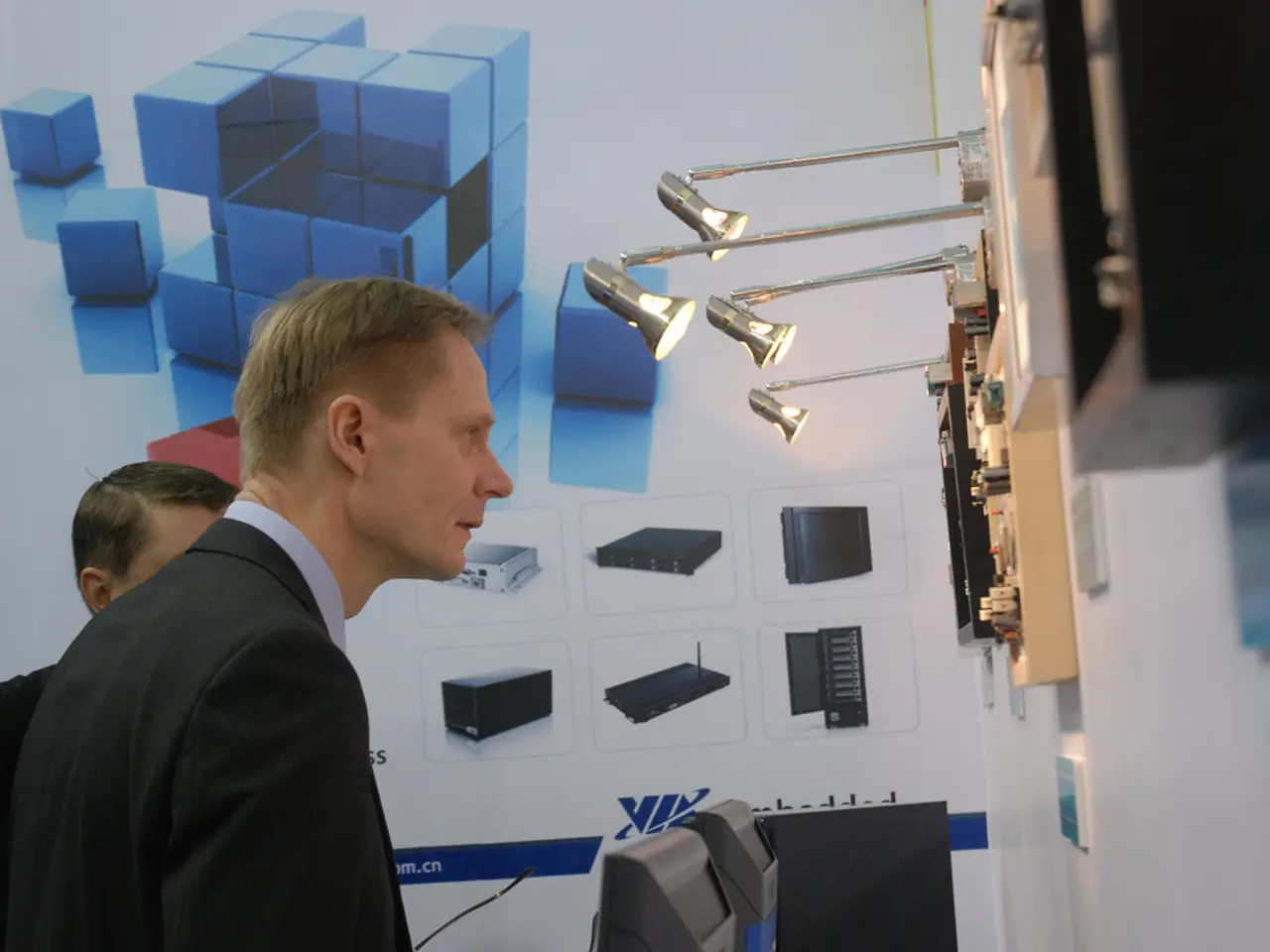Regulatory guidelines, transparent data, and precise billing essential for the prosperous deployment of smart meters in the power industry: CII Survey
The Confederation of Indian Industry (CII) has identified several key challenges for the rollout of smart metering in India. According to a poll conducted over the last two months among participants of the 3rd CII Smart Meter Conference, the challenges include aligning new smart meters with outdated utility infrastructure, connectivity issues, complex, fragmented regulatory frameworks, and low levels of awareness about billing and privacy concerns [1][2].
The poll findings suggest that 41% of respondents have a positive view of the current state of smart metering infrastructure in India [4]. To address these challenges, the solutions recommended by respondents focus on making smart meter deployment mandatory via clear regulatory guidelines, ensuring consumer access to transparent data, accurate billing, and efficient grievance redressal mechanisms. Improving the user experience, especially for prepayment of electricity bills (comparable to mobile or DTH payments), was emphasized to increase consumer engagement and trust [1][2]. Modernizing distribution grids was also acknowledged as necessary to support the infrastructure [3].
Dr. Suket Singhal, Group Chief Executive Officer of Secure Meters, led the CII Taskforce on Smart Metering in 2024-25 and emphasized the need to modernize distribution grids for short- and medium-term success. He stated that consumers are asking for a better experience, which can be provided by ensuring everyone gets to pay what they can, when they can [5]. Dr. Singhal also highlighted that RDSS, one of the world's best smart metering constructs, is essential for the Indian industry to deliver [6].
To ensure security and data privacy remain robust, adequate processes should be in place for all smart metering systems. Consumers were empowered by respondents to have data visibility, accurate billing, and prompt grievance redressal [1][2]. The most significant outcome of the poll, according to Dr Singhal, was the need to improve consumer engagement [7]. The respondents suggested mandating smart meter rollouts through clear regulatory directives [1][2].
In conclusion, a comprehensive approach is seen as essential for realizing the potential benefits of smart metering in India. This approach includes addressing challenges related to outdated utility infrastructure, connectivity issues, regulatory hurdles, and low consumer awareness, while focusing on solutions such as mandating smart meter deployment, improving user experience, modernizing distribution grids, and ensuring data privacy and security [1][2][3].
References: [1] CII Poll on Smart Metering Rollout in India [2] 3rd CII Smart Meter Conference [3] Modernizing Distribution Grids for Smart Metering [4] Consumer Views on Smart Metering Infrastructure in India [5] Consumers Seek Better Experience with Smart Metering [6] RDSS: The Future of Smart Metering Technology in India [7] Improving Consumer Engagement for Smart Metering Success in India
- The challenges identified in the rollout of smart metering in India include aligning new smart meters with outdated utility infrastructure, connectivity issues, complex regulatory frameworks, low consumer awareness about billing and privacy concerns, and the need to modernize distribution grids.
- To address these challenges, solutions recommended by respondents include making smart meter deployment mandatory via clear regulatory guidelines, ensuring consumer access to transparent data, accurate billing, and efficient grievance redressal mechanisms, improving the user experience, and focusing on the modernization of distribution grids for short- and medium-term success.
- To ensure security and data privacy remain robust, adequate processes should be in place for all smart metering systems, and consumers should have data visibility, accurate billing, and prompt grievance redressal.
- A comprehensive approach is essential for realizing the potential benefits of smart metering in India, focusing on solutions such as mandating smart meter rollouts through clear regulatory directives, improving user experience, modernizing distribution grids, and ensuring data privacy and security.




